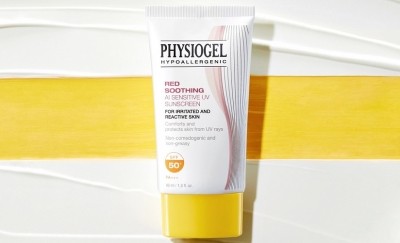Strategic markets: Masstige skin care and sustainable beauty identified as huge opportunities for growth in China – Quadpack
![Masstige skin care and sustainable beauty are two of the biggest opportunities for China growth, says Quadpack. [Getty Images]](/var/wrbm_gb_food_pharma/storage/images/_aliases/wrbm_large/publications/cosmetics/cosmeticsdesign-asia.com/headlines/business-financial/masstige-skin-care-and-sustainable-beauty-identified-as-huge-opportunities-for-growth-in-china-quadpack/12302585-1-eng-GB/Masstige-skin-care-and-sustainable-beauty-identified-as-huge-opportunities-for-growth-in-China-Quadpack.jpg)
As part of its 2020-2025 strategy, the Barcelona-based company is strengthening its presence in its key territories including Asia Pacific, which is important for the firm’s future growth.
“Asia Pacific is an important priority for the group in terms of future growth potential. We’ve already penetrated Korea and opened an office in Japan last June, and we have a long presence and support in Australia and New Zealand,” said Raj Savji, APAC managing director, Quadpack.
He added: “In terms of APAC, China is a really important market for us. We do see China as a strategic market. China represents 32% of beauty consumption in Asia and 11% worldwide. The market size of €52.5bn is estimated to grow to €80bn.”
China is particularly crucial for cosmetic firms right now, as it has been the market to bounce back the quickest from the COVID-19 pandemic.
Going local
Considering the impact of COVID-19 its ripple effects on the beauty and personal care market, Savji told CosmeticsDesign-Asia that the skin care category was a specific target for Quadpack.
The firm has identified the masstige market in particular as an area of tremendous potential.
“For us, it’s a big market in terms of size and our product offering in terms of technology and value is well suited to the masstige market and the brands that operate in that space,” said Savji.
Quadpack is aiming to target both global brands in China, as well as domestic brands which have been growing in numbers in the past few years.
“China is made up of global brands with a strong presence in the market, but we’re also seeing the emergence of mid-sized brands that are growing in significance. There’s a huge market and a huge amount of scope,” said Savji.
These domestic brands, he added were looking for ‘made-in-Europe’ products and were willing to pay the premium for it.
“From our research and understanding of the market, we are able to offer competitive solutions for Chinese brands and therefore their Chinese consumers. And I think it’s a premium that certain brands can afford now,” said Savji.
To reach out to these brands, the firm has recently partnered with Yuga, a local cosmetic packaging firm, to market its products.
Savji added that offering more sustainable options for the Chinese market was becoming increasingly crucial.
“This is growing in importance as the Chinese consumers are becoming more aware of the environmental impact packaging has on the planet. We would like to be at the forefront in this space and to be able to pioneer solutions for the market.”

![Bio-essence is eyeing opportunities for products catering to sensitive skin and pandemic-related concerns like ‘maskne'. [Bio-essence]](/var/wrbm_gb_food_pharma/storage/images/_aliases/wrbm_medium/publications/cosmetics/cosmeticsdesign-asia.com/article/2021/04/14/bio-essence-targets-opportunities-by-solving-covid-related-skin-care-problems/12332048-1-eng-GB/Bio-essence-targets-opportunities-by-solving-COVID-related-skin-care-problems.jpg)

![Bondi Sands has outlined how it aims to become a leader in the sustainable beauty arena. [Bondi Sands]](/var/wrbm_gb_food_pharma/storage/images/_aliases/wrbm_medium/publications/cosmetics/cosmeticsdesign-asia.com/headlines/brand-innovation/bondi-sands-committed-to-forging-more-sustainable-path-in-the-next-three-years-ceo/12123224-1-eng-GB/Bondi-Sands-committed-to-forging-more-sustainable-path-in-the-next-three-years-CEO.jpg)





![Indus Valley is working to corner 30% of India's online premium boxed hair colour market. [Indus Valley]](/var/wrbm_gb_food_pharma/storage/images/_aliases/wrbm_tiny/publications/cosmetics/cosmeticsdesign-asia.com/article/2024/07/26/indus-valley-aims-to-secure-30-of-india-s-online-premium-hair-colour-market-with-organic-offerings/17594932-5-eng-GB/Indus-Valley-aims-to-secure-30-of-India-s-online-premium-hair-colour-market-with-organic-offerings.jpg)
![[Getty Images]](/var/wrbm_gb_food_pharma/storage/images/_aliases/wrbm_tiny/publications/cosmetics/cosmeticsdesign-asia.com/china/china-focus-latest-developments-in-china-s-booming-beauty-market25/17606695-1-eng-GB/China-focus-Latest-developments-in-China-s-booming-beauty-market.jpg)
![Kosé has launched makeup brand Visée in Singapore as part of plans to reinforce its position in SEA. [Visée]](/var/wrbm_gb_food_pharma/storage/images/_aliases/wrbm_tiny/publications/cosmetics/cosmeticsdesign-asia.com/headlines/business-financial/visee-singapore-kose-aims-to-enhance-brand-visibility-in-sea-with-new-launch/17587264-1-eng-GB/Visee-Singapore-Kose-aims-to-enhance-brand-visibility-in-SEA-with-new-launch.jpg)
![ble C&C is set on reinforcing its competitiveness in China’s beauty market. [Missha]](/var/wrbm_gb_food_pharma/storage/images/_aliases/wrbm_tiny/publications/cosmetics/cosmeticsdesign-asia.com/headlines/business-financial/able-c-c-aims-to-strengthen-competitiveness-in-china-through-online-expansion-kol-collabs/17591626-1-eng-GB/Able-C-C-aims-to-strengthen-competitiveness-in-China-through-online-expansion-KOL-collabs.jpg)

![LG H&H genetic study says 23 genetic regions affect natural skin tone. [Getty Images]](/var/wrbm_gb_food_pharma/storage/images/_aliases/wrbm_tiny/publications/cosmetics/cosmeticsdesign-asia.com/article/2024/07/23/lg-h-h-discovery-of-genetic-skin-tone-factors-in-east-asians-potentially-key-to-skin-radiance-developments/17587210-1-eng-GB/LG-H-H-discovery-of-genetic-skin-tone-factors-in-East-Asians-potentially-key-to-skin-radiance-developments.jpg)

![DR.CI:LABO expects brand-supplier partnerships gain more public prominence as consumers interest in skin care grows online. [Dr.Ci:Labo]](/var/wrbm_gb_food_pharma/storage/images/_aliases/wrbm_tiny/publications/cosmetics/cosmeticsdesign-asia.com/article/2024/07/22/brand-supplier-partnerships-will-come-to-the-fore-amid-the-online-skin-care-landscape-dr.ci-labo/17576755-1-eng-GB/Brand-supplier-partnerships-will-come-to-the-fore-amid-the-online-skin-care-landscape-DR.CI-LABO.png)


